2006 Toyota Camry Repair, Service & Tires
Get Started
Complete Auto Care for Your 2006 Toyota Camry
-
TIRES FOR YOUR 2006 Toyota Camry View Tire Info GET TIRE PRICING
-
REPAIR FOR YOUR 2006 Toyota Camry View Repair Info SCHEDULE REPAIR
-
MAINTENANCE FOR YOUR 2006 Toyota Camry View Maintenance Info SCHEDULE MAINTENANCE
-
OFFERS FOR YOUR 2006 Toyota Camry Limited Time Tire Offers VIEW ALL COUPONS
2006 Toyota Camry Tires
Recommended Tires | Tire Information
2006 Toyota Camry Tires Sizes, Speed Ratings, and Inflation
Not sure about your 2006 Toyota Camry tire size? Use the following chart to find information on tire size, speed rating, and inflation.
| Trim Level | Speed Rating | Inflation in PSI F/R | Tire Size |
|---|---|---|---|
| 2006 Toyota Camry LE | H | 29 PSI/29 PSI | P205/65R15 |
| 2006 Toyota Camry XLE | V | 29 PSI/29 PSI | P215/60R16 |
| 2006 Toyota Camry SE* | V | 30 PSI/30 PSI | P215/55R17 |
| 2006 Toyota Camry SE* | V | 29 PSI/29 PSI | P215/60R16 |
| 2006 Toyota Camry Base | H | 29 PSI/29 PSI | P205/65R15 |
|
2006 Toyota Camry LE Speed Rating: H Inflation F/R: 29 PSI/29 PSI |
|
2006 Toyota Camry XLE Speed Rating: V Inflation F/R: 29 PSI/29 PSI |
|
2006 Toyota Camry SE* Speed Rating: V Inflation F/R: 30 PSI/30 PSI |
|
2006 Toyota Camry SE* Speed Rating: V Inflation F/R: 29 PSI/29 PSI |
|
2006 Toyota Camry Base Speed Rating: H Inflation F/R: 29 PSI/29 PSI |
* Note: these models have different tire sizes depending on vehicle options.
Recommended Tires for Your 2006 Toyota Camry
What tires are best for a 2006 Toyota Camry? Check out the following tire brands and types.
 Blizzak WS90
Blizzak WS90
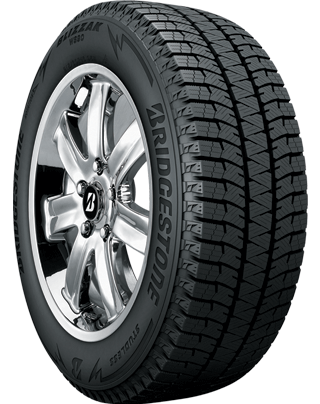
- No warranty
- Winter
- Winter
 Ecopia EP422 Plus
Ecopia EP422 Plus
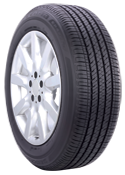
- Platinum Pact Limited Warranty
- All-Season
- Performance
 Turanza QUIETTRACK
Turanza QUIETTRACK
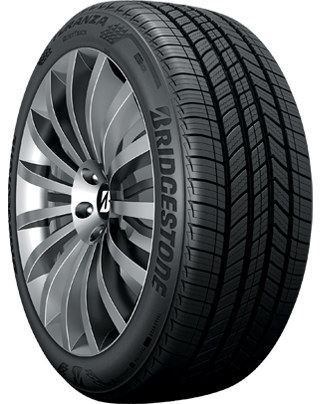
- No warranty
- All-Season
- Performance
 WEATHERPEAK
WEATHERPEAK
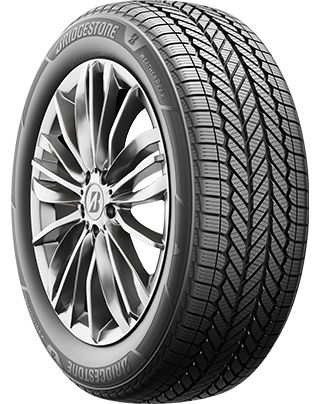
- Platinum Pact Limited Warranty
- All-Season
- Passenger Tires
 DriveGuard Plus
DriveGuard Plus
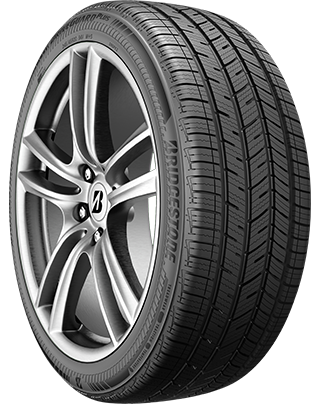
- Platinum Pact Limited Warranty
- All-Season
- Performance
 Turanza LS100
Turanza LS100
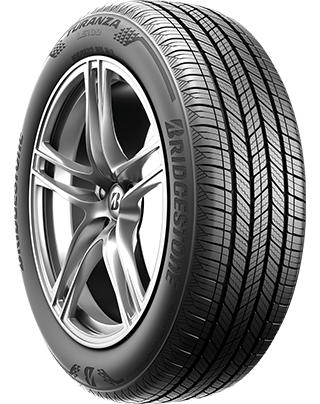
- Platinum Pact Limited Warranty
- All-Season
- Performance
 Potenza Sport AS
Potenza Sport AS
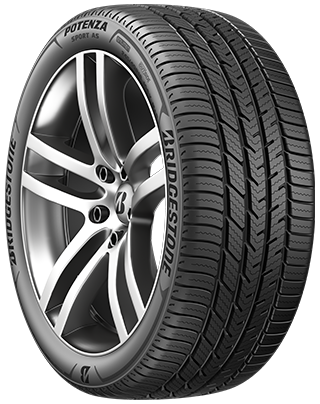
- Platinum Pact Limited Warranty
- All-Season
- Performance
 Turanza T005A
Turanza T005A
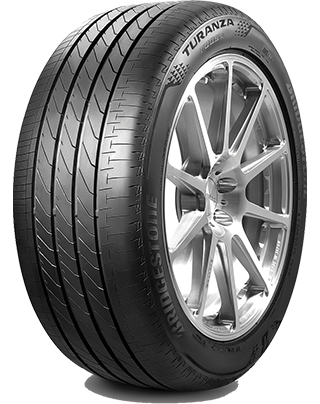
- No warranty
- Summer
- Performance
 ALL SEASON
ALL SEASON

- No warranty
- All-Season
- Passenger Tires
 WEATHERGRIP
WEATHERGRIP
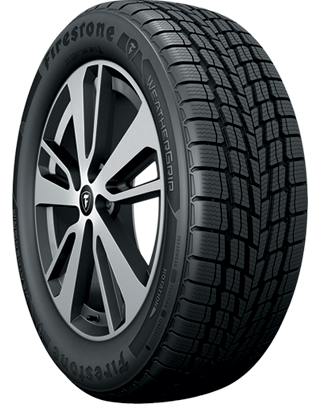
- No warranty
- All-Season
- Passenger Tires
 Winterforce 2
Winterforce 2
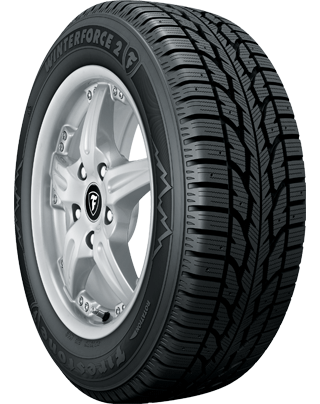
- No warranty
- Winter
- Winter
 Firehawk AS V2
Firehawk AS V2
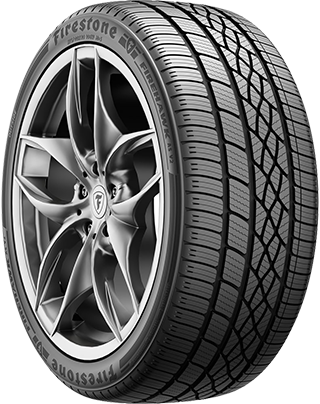
- No warranty
- All-Season
- Performance
 Firehawk Indy 500
Firehawk Indy 500
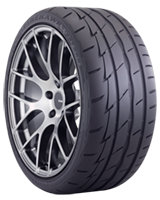
- Gold Pledge Limited Warranty
- Summer
- Performance

- No warranty
- All-Season
- Passenger Tires

- No warranty
- All-Season
- Passenger Tires
 Extensa A/S II
Extensa A/S II

- No warranty
- All-Season
- Passenger Tires
About 2006 Toyota Camry Tires
Beyond the correct tire size, you also want to consider a handful of other factors when buying new Toyota Camry tires like how and where you drive, and how much you want to spend. When thinking about your driving conditions, consider where you live (mountains vs. city vs. countryside) and the kind of weather can catch you off-guard. (Watch out Tornado Alley!) Drivers in states that fully experience all four seasons often buy two sets of tires: one for winter and one for summer. Other drivers prefer to purchase one all-season set to limit trips to the tire shop and make sure their vehicle is prepared in the rain, sleet, snow, or sun!
Next, consider your driving style. If you're a diehard off-roader, you have very different tire needs than a highway commuter who doesn't leave the paved path. Talk to a tire technician at Firestone Complete Auto Care for help choosing the best tire for you, or start shopping for Toyota Camry tires online.
Installing Toyota Camry Tires
Firestone Complete Auto Care has been a leading tire provider for more than a century. We're a tire store that also offers professional tire installation, maintenance, and rotation, along with complete auto care. We make it easy to buy new 2006 Toyota Camry tires online and book an installation appointment at the same time.
2006 Toyota Camry Tire Questions
-
Why check Toyota tire inflation? Even a tiny decrease in tire pressure could impact your safety and fuel economy. Maintaining proper tire pressure can help increase fuel economy, improve braking time, and boost tire lifespan.
-
What do the numbers on my Toyota Camry tires mean? The numbers on your tire sidewall give you information about tire speed rating, traction, treadwear, tire size, and load carrying capacity. Chat with a tire technician to learn how to read the numbers on your Toyota tires!
-
Can I check the tread depth on my Toyota tires at home? Stay on top of your tire tread depth to help avoid a dangerous drive. You can check tread depth with a penny. Hold the penny so that Abraham Lincoln is facing you, then place your penny into a tread groove upside down. If you can see the top of Abe’s head, your tread is shallow and it might be time for new Toyota Camry tires. Grab a penny. Hold the so that Abe Lincon's head is facing you and his hair is pointing toward the ground. Then, place the penny into a tread groove. If you can see the top of Abe’s head, your tread is shallow and it might be time for new Toyota Camry tires.
Types of 2006 Toyota Camry Repairs
Want more details? Choose a service below to read more about Toyota Camry repairs at Firestone Complete Auto Care.
Get Repairs for Your 2006 Toyota Camry
For most drivers, the words “car repair” don’t exactly spark excitement. We’re here to change that, though. At Firestone Complete Auto Care, we want to make car repair painless and hassle-free. When it’s time for 2006 Toyota Camry repair services, head to your nearest Firestone location and our skilled repair technicians will get your Camry back on the road. We’ll start by assessing what repairs may be needed, and we’ll provide you with a detailed explanation of what we recommend. We’ll never recommend a repair we don’t think is necessary for your safety or the performance of your Toyota.
How Much Are Toyota Camry Repairs?
The cost to repair your 2006 Toyota Camry depends on what kind of repair you need, prices of appropriate replacement parts, how much labor the repair will take, and your locale. We update them regularly to keep our deals fresh!
A few different aspects can influence repair costs for your 2006 Toyota Camry, like
2006 Toyota Camry Auto Repair Questions
-
Do I need to follow Toyota's maintenance schedule? One of the best ways to prevent 2006 Toyota Camry repairs is by staying on top of your Toyota maintenance schedule. This schedule is written by the people who made your vehicle and they know best how to keep it running smoothly.
-
What does it mean to be 'in tune' with your car? You’re in your car, day in and day out. So, it’s only expected that you know your car better than anyone else! If you notice mysterious smells, strange engine noises, or other out-of-the-ordinary symptoms while driving, trust your instincts and stop into Firestone Complete Auto Care for a Courtesy Check. Catching a potential issue early could help prevent Toyota Camry repairs.
-
Why do you recommend certain repairs for my Toyota? We won’t recommend a service or repair for your 2006 Toyota Camry unless we think it’s necessary to keep you safe. Want to know more about a specific recommended repair? Ask! We’re here to help.
Get Your 2006 Toyota Camry Brakes Fixed
You might have a strong and reliable engine in your Toyota Camry. But if you can’t brake, it might as well be scrap metal. Don't wait if you're experiencing brake squeaks or a loss of braking power. Safe driving is difficult when your brakes are anything but their best. Plus, waiting can lead to more expensive parts wearing out and requiring replacement. Get your 2006 Toyota Camry brakes fixed at Firestone Complete Auto Care. We offer many affordable brake repairs like brake pad/shoe removal and replacement, brake rotor/drum refinishing, brake fluid exchange/bleeding, and brake caliper and wheel cylinder installation.
Toyota Camry Brakes Questions
-
Why does my Camry shake when I brake? Feeling shaking or vibrating in your Camry as you brake might indicate a few different problems, including worn brake pads or rotors, loose suspension components, damaged brake calipers, or warped rotors. Book an appointment for a free brake inspection as soon as you notice a problem with your brakes.
-
How long should my Camry brake pads last? In general, brake pads can last from 30,000 to 40,000 miles. Certain factors, like driving on highways mostly and braking smoothly, can help your brake pads last longer. Hauling heavy loads and riding your brakes can shorten brake pad lifespan.
-
Should my Camry be leaking brake fluid when the car is off? Your Camry brake system is a closed hydraulic system, which means that the brake fluid should not leak out of the system under normal circumstances. However, over time, the various components of the brake system can wear out or become damaged, which can cause brake fluid to leak out of the system.
2006 Toyota Camry Drivetrain Repairs
Drivetrains for front, rear, and all-wheel-drive and 4WD vehicles are quite different, so you don't want to go to just anyone for drivetrain repair. You want to go to Firestone Complete Auto Care. We can take care of most 2006 Toyota Camry drivetrain components Your Toyota Camry may need driveshaft attention if you feel vibration as your vehicle accelerates, clunks when shifting, heavy vibrations in your floorboards, or resistance when turning.
2006 Toyota Camry Drivetrain Questions
-
What are the symptoms of a damaged Toyota drivetrain system? Noises toward the back of your Toyota Camry, leaking fluid, trouble turning — these could all be signs of drivetrain damage you want to address. Take action before something more severe happens.
-
What triggers the malfunction indicator light (MIL) in a Camry? The malfunction indicator light — also known as the check engine light — on your Camry can illuminate for a variety of reasons, including engine issues, electrical problems, damaged sensors, transmission problems, misfires, and faulty connections.
-
How worried should I be about a drivetrain malfunction in my Camry? If your Camry has a drivetrain malfunction, don't wait. Get it checked out by a professional mechanic. Identifying the underlying cause and performing the appropriate repairs right away can help prevent further damage and avoid unsafe driving conditions.
Wheel Alignment for 2006 Toyota Camry
With an alignment service, adjustments are made to your Toyota Camry’s suspension system, the connection between the vehicle and the wheels. During the service, the individual angles of your tires are adjusted so that they come into contact with the road in just the right way — the way Toyota intended them to. When you bring in your 2006 Toyota Camry, we’ll perform an alignment check first. If needed, we'll adjust your wheel alignment angles to match Toyota recommendations.
Toyota Camry Alignment Questions
-
Are there road conditions that can hurt my Toyota Camry alignment? When it’s safe to do so, avoid driving over potholes or hitting curbs. These road obstacles can wreak havoc on your wheel alignment, as can wear and tear from rough road conditions.
-
How often does your Camry need a wheel alignment? Check your Camry owner's manual for Toyota's recommended interval. It's generally a good idea to check your alignment every 6,000 miles or 6 months, depending on which comes first.
-
Does getting new Camry tires mean you need an alignment? You likely aren't required to get an alignment when you put new tires on your Camry, but it's a super smart idea! An alignment can help ensure optimal tire wear, fuel efficiency, and handling. Still, you should reference your Camry owner’s manual for what’s recommended.
Engine Repairs for Your 2006 Toyota Camry
When your Toyota Camry engine needs repairs, our expert techs will let you know what needs to be done and why before they get started. We make recommendations, but you make the final decision. If a repair isn’t urgent right now, we’ll let you know. But if immediate repairs are necessary for your safety, we’ll make sure that's clear, too. We want to provide you with the information you need to make an informed engine repair decision. Choose Firestone Complete Auto Care for Toyota Camry engine repairs and you can feel confident knowing that we use Toyota-approved parts and components like the serpentine belt, valve guide seal, fuses, or other parts.
2006 Toyota Camry Engine Q&A
-
Why does the check engine light come on when I start my Camry? Generally, your check engine light turning on upon ignition is not a bad thing. It’s just your Camry firing up its circuits. The light should turn off in a bit, but come see us if it doesn't.
-
Are Toyota Camry engine noises bad? Unusual noises can signal a problem with your Toyota Camry engine. Tapping or knocking could mean you're low on oil. Whistling could mean a belt is misaligned or there's an intake leak. Squealing can indicate a loose fan belt, and grinding might be coming from the brakes, not the engine.
-
What could damage a Toyota engine? Some driving habits are not so great for your engine. These include driving on a near-empty gas tank, flooring the gas pedal while the car is in Park, or accelerating too quickly, too soon. Protect your engine’s performance and efficiency by distancing yourself from these habits.
Tire Repair for Your 2006 Toyota Camry
Firestone Complete Auto Care is here for you when your 2006 Toyota Camry needs flat tire repair or inspection. In some cases, a tire doesn’t have to be replaced – it can be plugged and patched with a simple repair. Depending on the damage, though, a repair might not be the right move. Our technicians can determine which option is best for your situation. To start, we’ll consider the location of tire damage, the type of issue, the size and scope of the damage, and the amount of wear on your tires.
If we determine that your 2006 Toyota Camry tire can be safely repaired, we'll follow three basic steps to repair it: (1) Separate the tire from the vehicle wheel, (2) fill the puncture to keep the moisture out, and (3) re-seal the inside lining of your tire so that air won’t escape.
Frequently Asked Toyota Camry Tire Repair Questions
-
How soon should I have my flat tire repaired? A flat tire that’s not addressed can take a terrible toll on the rest of your car. Until you have it repaired or replaced, drive your Camry as little as possible to reduce your risk of damage to the wheels and alignment – or further damage to that already struggling tire!
-
Can I use an emergency/temporary sealant to fix my Toyota's flat tire? Fast fixes are a mixed blessing. They’ll help you get your Toyota Camry to Firestone Complete Auto Care, but don’t count on them to keep you on the road for very long. Using a temporary sealant may also void a Bridgestone or Firestone tire warranty.
-
What is causing the tires on my Camry to keep losing air? If your Camry tires are always losing air, you may have a puncture, damaged wheel, or leaking valve stem.
Maintenance for Your 2006 Toyota Camry
You want your Toyota Camry to last as long as possible. If you put in the effort to keep up with proper maintenance, you could hit 200,000 miles (or beyond!) in your Camry.
Guide to 2006 Toyota Camry Scheduled Maintenance
Instead of waiting for an issue to arise with your Camry, you can stay ahead of problems before they even begin. It’s as easy as following the recommended maintenance schedule that’s been written specifically for your 2006 Toyota Camry! Toyota knows your vehicle inside and out (they made it, after all!), so they’ve designed this schedule with your car’s unique needs in mind. Driving conditions, climate variations, and other variables can affect which scheduled maintenance services you’ll need; in most cases, though, recommended maintenance will consist of services like oil changes, tire rotations, brake pad replacement, filter changes, and fluid checks and exchanges. Staying on track with routine service appointments can help your Camry perform better, decrease your risk of dangerous malfunctions on the road, and maybe even save you the headache of dealing with common 2006 Toyota Camry problems in the future.
Essential Maintenance to Keep Your 2006 Toyota Camry Running Newer, Longer
Head to your nearest Firestone Complete Auto Care in your 2006 Toyota Camry for factory-recommended routine maintenance and a skilled technician will start the appointment with a Courtesy Check. This Courtesy Check can establish a baseline of what may need to be addressed during your service appointment. During a Courtesy Check, we’ll always check your battery, then we’ll move on to inspect your Camry’s head and tail lights, tires, fluid levels, alignment, and windshield wipers.
Firestone Complete Auto Care is your one-stop shop for 2006 Toyota Camry maintenance and repairs. So visit us regularly, or visit us urgently. Many locations are open on weekends and in the evening.
Questions About 2006 Toyota Camry Maintenance
-
When should I have Toyota Camry alignment checked? Check your car for pothole damage! If you’ve recently hit a pothole (or even if you don’t remember hitting one… they can be sneaky!) check your tire treads, tire sidewalls, and wheels for damage. Potholes can also knock your car out of alignment, so have your alignment checked if you suspect you’ve driven over a rough patch of road lately.
-
When should I use high mileage oil in my Toyota Camry? If your Toyota Camry has ticked past 75,000 miles, consider switching to high mileage oil at your next oil change to give your engine what it needs to go another 75,000 (or more!). High mileage oil: make it a high priority!
-
Why are my Toyota dashboard lights on? It's better to get them addressed as soon as possible. An illuminated dashboard light means something in your vehicle isn't functioning like it should. Letting problems linger can mean bad news for your Toyota Camry, so be sure to take your car in for service as soon as you notice an illuminated dashboard light.
Battery Size & Replacement for 2006 Toyota Camry
Need more info about Toyota Camry batteries?
| Battery | Engine | Warranty | Cold Cranking Amps | |
|---|---|---|---|---|
| 24F-3 | V6/3.3L | Replacement 24 months | Performance months | 650 |
| 35-2 | V6/3.3L | Replacement 36 months | Performance months | 640 |
| 24F-RP | V6/3.3L | Replacement 48 months | Performance months | 750 |
| 24F-3 | V6/3.0L | Replacement 24 months | Performance months | 650 |
| 24F-6 | V6/3.0L | Replacement 36 months | Performance months | 750 |
| 24F-RP | V6/3.0L | Replacement 48 months | Performance months | 750 |
| 24F-3 | L4/2.4L | Replacement 24 months | Performance months | 650 |
| 24F-6 | L4/2.4L | Replacement 36 months | Performance months | 750 |
| 24F-RP | L4/2.4L | Replacement 48 months | Performance months | 750 |
2006 Toyota Camry Batteries
On average, auto batteries last anywhere from three to five years. You want to replace your 2006 Toyota Camry battery before it fails and leaves you stranded. Look out for symptoms of a faulty car battery. A lagging starter, an illuminated battery or check engine light, bloated battery case, corroded battery posts, or dim headlights can all be signs that your battery is on its last leg.
Plus, at Firestone Complete Auto Care, we’ll test your battery for free. Drop in for a free battery check and, if needed, a replacement battery for your 2006 Toyota Camry. Car batteries are one of our many specialties! Our technicians are well-acquainted with Toyota’s service specs for Camry battery CCAs and reserve capacity. Get help choosing the battery size that fits your car perfectly, and schedule a weekday or weekend battery replacement service for your car.
Commonly Asked Toyota Camry Battery Questions
-
Why won’t my Toyota Camry battery hold a charge? A battery that won't hold a charge is almost as good as dead. The battery might be old. Or, you may have a habit of leaving your car doors open and the lights on overnight. Stop by for a free battery test at your local Firestone Complete Auto Care to learn more about the state of your battery.
-
How long can I expect my car battery to last? A car battery normally lasts three to five years, but this number can vary based on battery type, your driving habits, and battery maintenance.
-
Why is there white, flaky stuff around my Camry’s battery post? The white, flaky stuff that can build up around your Camry’s battery terminals is known as corrosion. Acid leaking from your vehicle’s battery post can have a chemical reaction with the air, leading to an accumulation of the white, powdery substance over time. Corrosion can affect the flow of electricity between your battery and the electrical system in your Camry, possibly causing issues with electrical performance and starting. If left unaddressed for long enough, it may even cause your battery to prematurely fail.
2006 Toyota Camry Oil Change Service
Your 2006 Camry’s oil should be changed according to Toyota’s recommended oil change intervals. No matter the mileage, your Camry may need its oil changed ASAP if your check engine light is on, you hear knock knock knock coming from the engine, smell oil inside the car, or notice excess vehicle exhaust. You might need an oil change more frequently than what’s recommended by Toyota if you regularly haul heavy loads, drive in dusty areas, adventure off-road, or go at low speeds on long distance trips.
Your local Firestone Complete Auto Care has the right 2006 Toyota Camry motor oil: either synthetic or conventional. Talk with a teammate and consult your owner's manual before picking a motor oil. At Firestone Complete Auto Care, you can choose from the following oils: Quaker State® Advanced Durability™ conventional oil, Pennzoil® High Mileage Vehicle® motor oil, Pennzoil Platinum® Full Synthetic motor oil with PurePlus™ Technology, and Shell Rotella® heavy-duty engine oil. In an oil change service, an auto technician will change your Camry’s oil, replace and recycle your used oil and oil filter, check all of your other filters, top-off important fluids, and perform a free inspection on the rest of your vehicle. Get professional engine care by making an oil change appointment for your Camry today.
2006 Toyota Camry Oil Change Q&A
-
What does it mean if my Toyota Camry oil light comes on? If you’re overdue for an oil change, it might trigger your Toyota Camry oil change reminder light. If the oil pressure light is illuminated, it could be due to low engine oil, a failing oil pump, a malfunctioning oil pressure sensor, or a clogged oil filter.
-
How hard is it to change Toyota Camry oil at home? Changing engine oil at home isn’t as simple as it’s made out to be. You’ll have to figure out how to properly dispose of the oil and buy special tools. Having your oil changed professionally can not only reduce the risk of something going wrong during the service, but it’ll also help your car perform smoothly down the road.
-
Why is my Toyota exhaust smoke gray or blue? There could be an oil leak and your engine is burning oil. Time to have a qualified technician check things out. The leak could be caused by several issues like leaking valve seals, damaged piston rings, or worn cylinder walls.
2006 Toyota Camry Tune-Up & Engine Service
Routine engine tune-ups can bring power back to your Camry. Your local Firestone Complete Auto Care offers a range of engine tune-up services for your 2006 Toyota Camry. One option is the standard Firestone Tune-Up. It includes a complete visual inspection of engine components, installation of new spark plugs, and a lifetime warranty on parts*. The second service focuses on your Camry's filters, specifically replacing the air filter and fuel filter. Our third service is a thorough cleaning of the fuel system. During this type of tune-up, we use a three-step process to get rid of harmful varnish, dirt, and carbon deposit buildup in your Camry’s fuel injectors, throttle body, and throttle plate. This can improve your fuel system’s performance (and therefore, your engine’s performance). Here’s something to remember when choosing services: the mileage and service history of your Camry can determine what kind of service it needs. Chat with a Firestone technician before you jump into a specific service to ensure your engine tune-up money is well-spent.
*Check with a teammate at Firestone Complete Auto Care for complete terms and conditions regarding warranties.
2006 Toyota Camry Engine Tune-Up Q&A
-
What happens if my Toyota Camry spark plugs fail? When it’s time to replace the spark plugs, don’t delay. These small (but vital!) parts provide the electric spark that your car needs in order to start, and old spark plugs can prevent your car from starting at all. Replace spark plugs on time or about every 30,000 miles or so.
-
What do I do if I see a pool of liquid under my Toyota Camry? Puddles could indicate an oil leak, coolant leak, or brake fluid leak– all of which can critically hurt your engine. Have your engine inspected as soon as you spot a pool of liquid in your usual parking spot.
-
How often do Toyota Camry fuel injectors need to be cleaned? There is no hard and fast rule on how often fuel injectors should be cleaned, and it can vary based on driving habits and fuel type. Some manufacturers may suggest including a fuel system cleaning in your regular maintenance schedule. Or you may need to clean your fuel injectors as needed if you notice signs of a fuel system problem.
2006 Camry Toyota Steering & Suspension Services
When you first bought your 2006 Toyota Camry, you and your passengers probably enjoyed a ride that was smooth and balanced. Now, however, things are starting to feel a little rough. Maybe your Camry jolts, leans to one side, or makes noise whenever you turn or drive over a speed bump. The first sign of trouble is the best time to bring your 2006 Toyota Camry in for steering and suspension repairs. We’ll get to the root of the issue and, if steering and suspension service is needed, we’ll explain what your car needs and how much it’ll cost to get it done. We won't begin any work without your permission.
2006 Camry Steering & Suspension Q&A
-
What can cause my Toyota Camry to have a bouncy ride? Excessive bouncing in your Toyota Camry might be due to damaged struts or shocks that are unable to absorb road bumps effectively, causing your vehicle to feel more like a pogo stick than a smooth ride.
-
Why does my Camry's nose dive down when I hit the brakes? The forward dip in the front end of your Camry when you brake is caused by the weight and momentum transferring to the front wheels. If your suspension system is in bad shape, it can fail to distribute this force, leading your front end to dip further downward.
-
Does tire pressure and tread depth impact my Toyota's suspension? Maintaining your tires can help reduce strain on the suspension, nd also let you know when it's time to replace your tires. A faltering steering and suspension system could lead to uneven tire wear.
A/C Service for Your 2006 Toyota Camry
Technicians at Firestone Complete Auto Care are ready to help you address your 2006 Toyota Camry A/C problems. In this A/C performance inspection, we’ll check out the current condition of your 2006 Toyota Camry A/C system to evaluate what repairs are necessary (if any). This check includes a visual inspection, performance test, and pressure and leak test.
When we perform an A/C repair on your 2006 Toyota Camry, we’ll also do an A/C evacuation and recharge. To start this process, a technician will flush out the old refrigerant from your vehicle’s A/C system. Then, they’ll perform an evacuation (also known as a discharge) on the entire system per Toyota guidelines. Finally, we’ll recharge the A/C system with new refrigerant.
Questions About 2006 Toyota Camry A/C Systems
-
Why do I get hot air from my Camry A/C? If your car’s air conditioning isn’t blowing cold air at all (or it tries, then turns warm), you could have a clogged expansion valve, a faulty compressor clutch, a leak, or a malfunctioning fuse in the system.
-
What can cause an A/C system leak? To put it simply, age and moisture are some of the main causes of leaks in your A/C. Over time, rubber gaskets and seals can wear out, which pushes much-needed refrigerant out of your Camry’s A/C system — and lets outside moisture get in, which can take a toll on internal A/C components.
-
Why does my vehicle have to be moving for my Camry’s A/C to work? There could be issues with one or more components in the air conditioning or electrical system. Your Camry may have a faulty cooling fan or low refrigerant.
2006 Toyota Camry Transmission Service
The transmission delivers power from the engine to the wheels so that you can drive on your terms. Since the transmission has to translate the precise amount of power for your desired amount of speed, a tiny transmission issue can take a major toll on your car’s performance. Toyota Camry transmission problems can present themselves as shifting delays, grinding or jumping during acceleration, the car shaking on the road, or whistling noises and a burning smell coming from under the hood. If you don’t pay attention to Toyota Camry transmission trouble you might notice your fuel economy decrease or find that your Camry isn’t working at all. Our expert techs are familiar with 2006 Camry services and perform them according to Toyota-recommended specifications. As soon as you suspect something’s wrong with your Camry’s transmission, book an appointment at your local Firestone Complete Auto Care to help keep your engine running at peak performance.
2006 Toyota Camry Transmission Questions & Answers
-
When should I have my Camry's transmission fluid checked or exchanged? Maintaining your Toyota Camry transmission fluid is one of the best ways to maintain your transmission's health. A general rule of thumb is to have your transmission fluid checked and changed about every 30,000 to 60,000 miles, but that timeline can change if you're hard on your Toyota. Leaks or low transmission fluid are easy to spot and affordable to repair.
-
Can my Toyota Camry leak transmission fluid? Yes, your Toyota Camry can develop a transmission fluid leak. As your Camry ages, parts of the transmission system might wear out or break down, leading to a leak and possible transmission issues. Common causes of transmission fluid leaks include worn seals, a damaged transmission housing, a loose or cracked transmission pan, an overfilled transmission, or faulty transmission lines.
-
Can I still drive my Toyota Camry if it has a transmission fluid leak? You should avoid driving with a transmission fluid leak. Your transmission system relies on transmission fluid to operate properly, and a leak may decrease performance, cause your Camry to overheat, or even lead to transmission failure.
Get a 2006 Toyota Camry Vehicle Inspection
Every service performed at Firestone Complete Auto Care includes a multi-point Courtesy Check. First, a technician will pop the hood on your Toyota Camry and test the battery to determine how much charge remains. The check will continue with a visual inspection of your Toyota Camry's lights, windshield wipers, filters, alignment, tires, hoses, belts and fluid levels.
Every service performed at your nearest Firestone Complete Auto Care will include a Courtesy Check, but we can also dig deeper and perform a Complete Vehicle Inspection on your 2006 Toyota Camry if you prefer. In addition to a visual check of everything that's included in a Courtesy Check, a Complete Vehicle Inspection also includes an examination (by hand!) of your exhaust system, steering and suspension, and brakes. The goal of this type of inspection is to unearth significant issues that might require preventative maintenance.
Depending on your location, your local Firestone Complete Auto Care may be able to perform state-mandated inspections or safety tests on your vehicle. Inspections are performed on a state-by-state basis and requirements vary.
2006 Toyota Camry Vehicle Inspection Q and A
-
How do I know if my Toyota Camry needs a check-up? It needs a check-up if something feels 'off' to you, the driver. Your Toyota Camry could benefit from a Courtesy Check if it has any illuminated dashboard lights, you hear weird noises coming from any part, the engine doesn't start sometimes, or your vehicle pulls to one side.
-
My 2006 Toyota Camry failed the state inspection test. Can you fix it? Did your vehicle fail a recent state inspection test? We can help. Come in for a checkup and we’ll diagnose the issue.
-
What's the ideal timing for a full vehicle inspection on my Toyota Camry? You should bring your Toyota Camry in for a full vehicle inspection if something weird happens and you can’t find the problem. A new dashboard light might come on, you may hear strange sounds under the hood, or your steering might feel off. A complete inspection is also a great idea before a road trip for added peace of mind.
2006 Toyota Camry Radiator Repair & Service
Keeping up with regular radiator maintenance in your 2006 Toyota Camry is crucial to keep your engine in the best possible shape for years to come. Toyota recommends that you replace coolant (also called antifreeze) at certain intervals, but it’s a good idea to keep your eyes open for any indication that your radiator is failing. You might be driving around (or about to be stranded) with a failing radiator if you notice a low coolant light or higher-than-normal engine temperatures on your dashboard, or if you spot coolant leaks coming from your car.
If you bring your vehicle to Firestone Complete Auto Care, we start with a comprehensive inspection of your Toyota Camry’s cooling system. We then do a machine-powered radiator exchange, replenish flushed chemicals, sealants, and lubricants, and then pressure check for leaks. From the radiator cap to the heater core, your 2006 Toyota Camry is in good hands at Firestone Complete Auto Care.
Common Toyota Camry Radiator Questions
-
What does an illuminated coolant temperature light mean for my Toyota? Pay attention to the temperature gauge and lights on your dashboard. If a low coolant warning light comes on or your dashboard temperature gauge keeps rising, it’s likely that your engine is about to overheat (and could leave you stranded on the road). Wait for the engine to cool down, then have your coolant system checked immediately at your nearest Firestone Complete Auto Care.
-
What can cause my Camry to overheat? If your Toyota Camry engine overheats, it could be because of a clogged radiator, a damaged thermostat, a faulty cooling fan, a malfunctioning water pump, or low coolant levels.
-
What is making my Camry radiator sound like it’s boiling or rumbling? Air pockets in your Camry’s cooling system may cause a rumbling or boiling noise. You could also have a clogged radiator or simply need to replace the radiator cap.